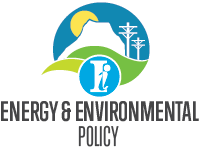 Energy and Environmental Policy (E2P) at the Independence Institute
Energy and Environmental Policy (E2P) at the Independence Institute
By all measures, life is better. Because of our ability to safely, responsibly and efficiently develop natural resources, our standard of living is up, life expectancy is up, and our environment is cleaner. Individuals prosper while also enjoying a healthy planet. If we create an atmosphere where human potential flourishes and we dare to imagine, then everyone can reap the benefits of affordable, reliable, abundant, and safe power and revel in the beauty of a thriving environment.
Our Vision
Access to affordable, reliable, abundant, safe energy and a clean environment are not mutually exclusive. At E2P we envision a Colorado where every person is in control of his or her own energy and environmental destiny. Private property owners are in the best position to protect their land and environment, and the choice of energy resources and how they are utilized should come from the demands of an innovative and free market.
What is the role of government? To remain neutral, let markets work, let individuals innovate, limit regulations, and refrain from picking winners and losers.
Our Principles
- People first
- Celebrate prosperity
- Innovation over regulation
- Commonsense conservation
- Primacy of private property rights
- Results over rhetoric
- Reject cynicism
Free Market Energy and Environmental Policy
- Embraces our entrepreneurial spirit and optimism that we can have affordable power, responsible domestic energy development, and a clean environment.
- Puts individuals in the driver’s seat and allows them to control their own energy future.
- Lets the choice of energy resources come from the demands of the free market, and not from the preferences of policymakers, lobbyists, or special interest groups.
- Champions private property rights.
- Challenges the 80-year-old, monopoly utility model of electricity generation and distribution.
- Puts states ahead of Washington, D.C.
- Encourages limited and consistent regulations.
- Rejects taxpayer funded subsidies.
- Doesn’t pick winners and losers.
- Welcomes transparency.

 Jake Fogleman
Jake Fogleman